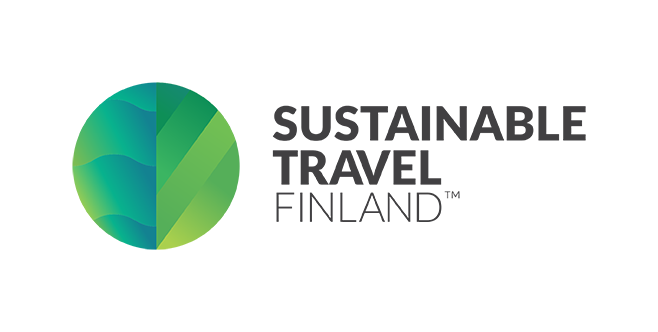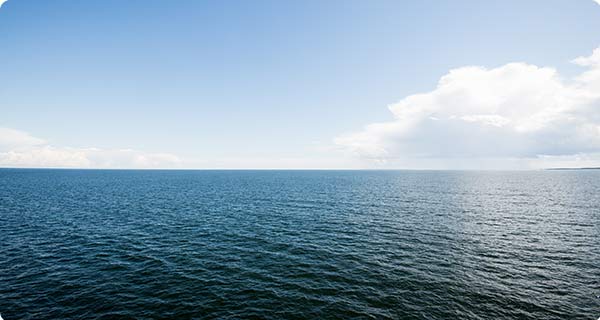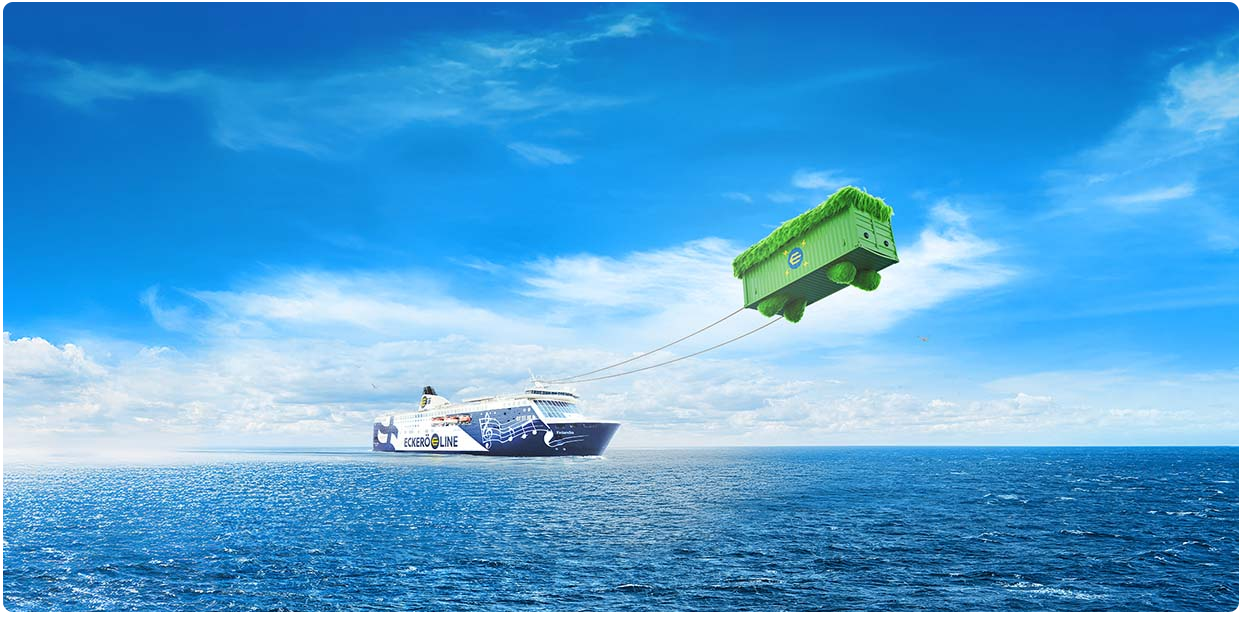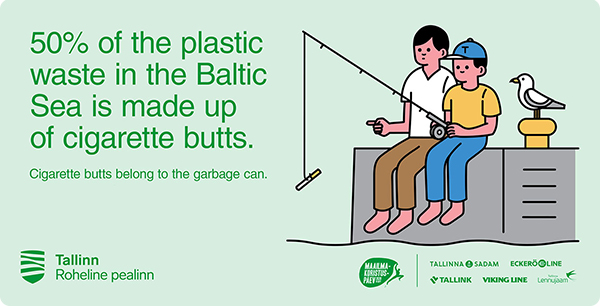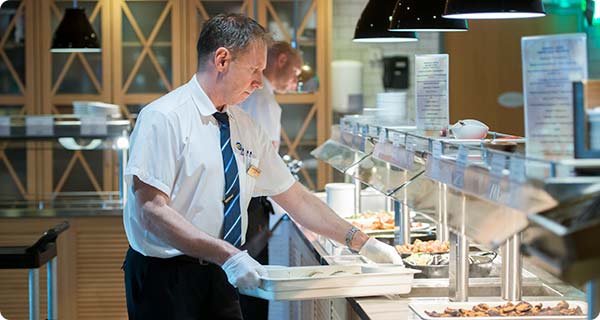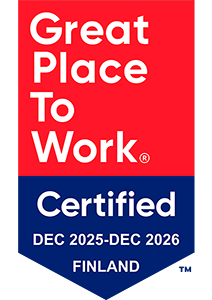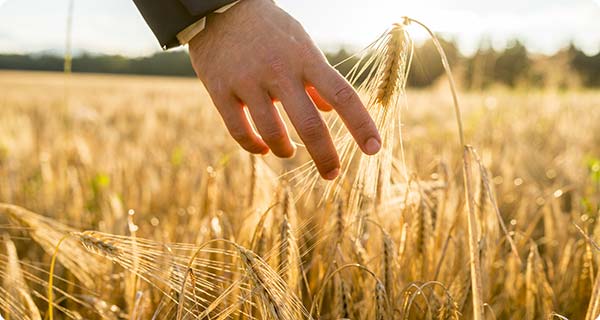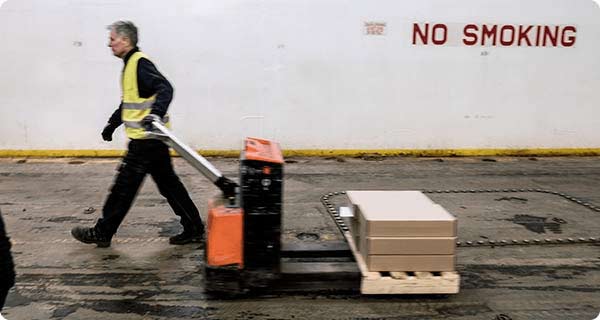Sustainability
The Baltic Sea and its surrounding archipelago are important for Eckerö Line - the sea is our life. We promote and develop our responsible practices in our business and throughout our entire value chain. Everyone in our organization has a responsibility to actively follow and to further develop our established sustainability goals.
We are dedicated to promoting responsible travelling and developing sustainable ways to operate. We are a part of the Sustainable Travel Finland programme, which promotes sustainable tourism and we control the environmental impact of our operations with the help of the ISO14001 environmental standard among other things. In spring 2026, our vessel m/s Finlandia will become the first partially electric passenger ship in the Gulf of Finland.
What does responsibility mean to us?
We have Sustainable Travel Finland label
Environment
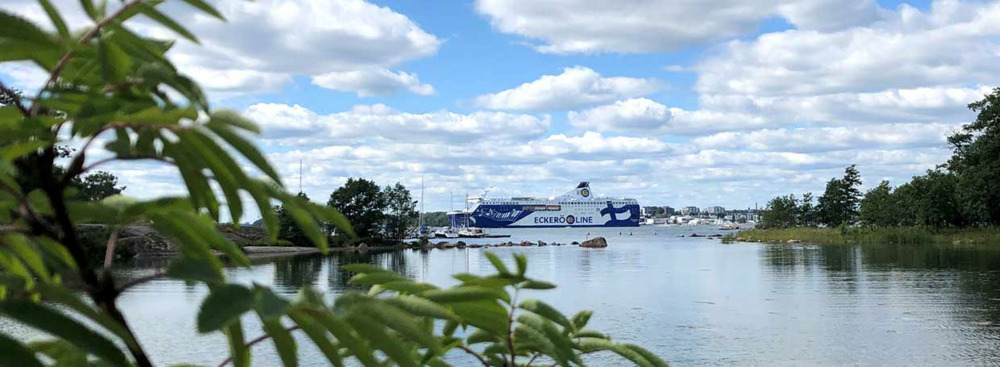
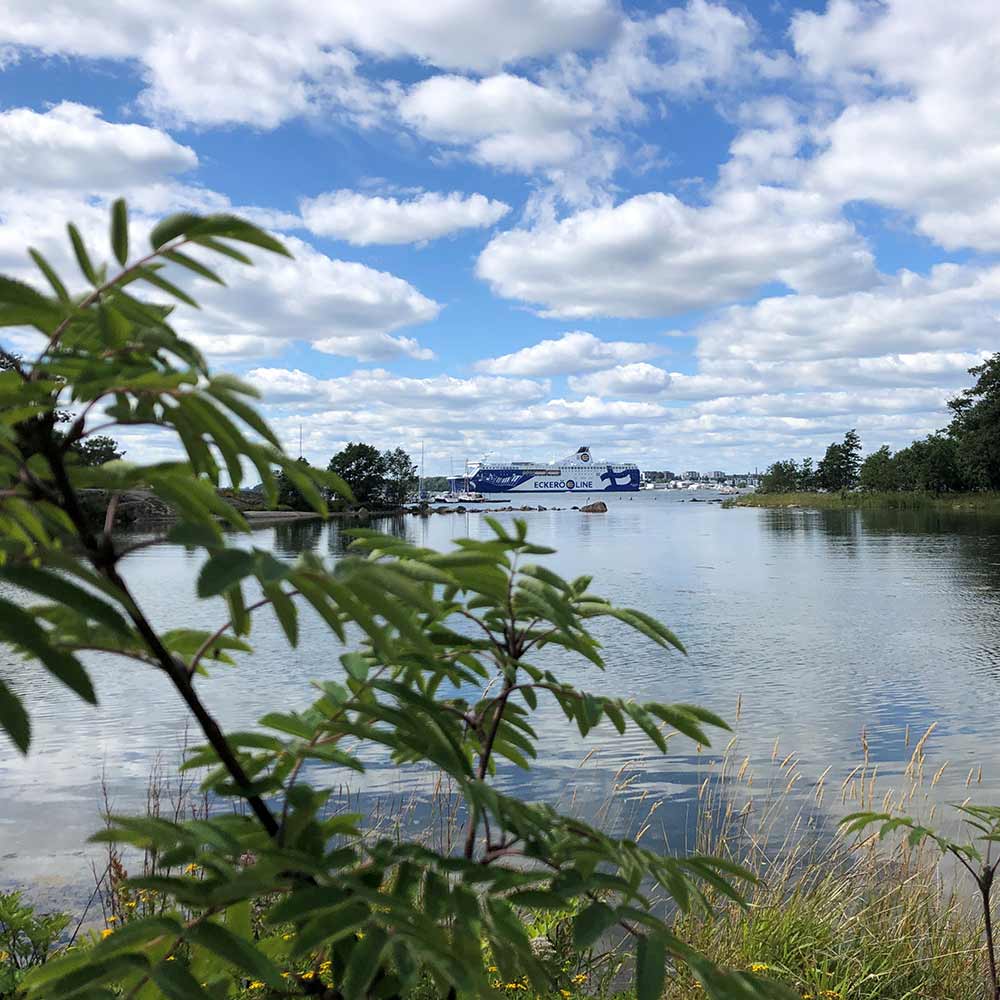
We are constantly developing our vessels' functions to optimize energy consumption and to reduce emissions. Eckerö Line is taking a significant step toward the electrification of maritime transport as m/s Finlandia will be fitted with a battery solution to reduce carbon dioxide emissions in early 2026.
Eckerö Line is committed to a joint and ambitious programme for the shipping industry to reduce emissions in line with the goals set by the EU and the IMO (International Maritime Organization).
We are part of the Green Corridor cooperation agreement, which aims to develop and create a sustainable, environmentally neutral maritime transport route and journey for passenger and freight customers between Helsinki and Tallinn, as well as between the ports of Vuosaari and Muuga. Read more about how you, as a passenger, can impact the environment and emissions.
MS Finlandia to be the first partly electrified passenger ship on the Gulf of Finland
Emissions
Shipping included in the EU Emissions Trading System
Energy and water consumption
Waste management
Reducing food loss
People
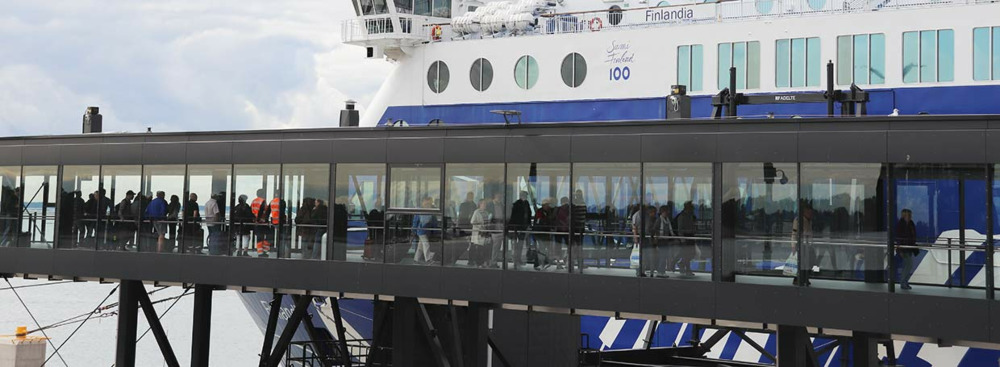
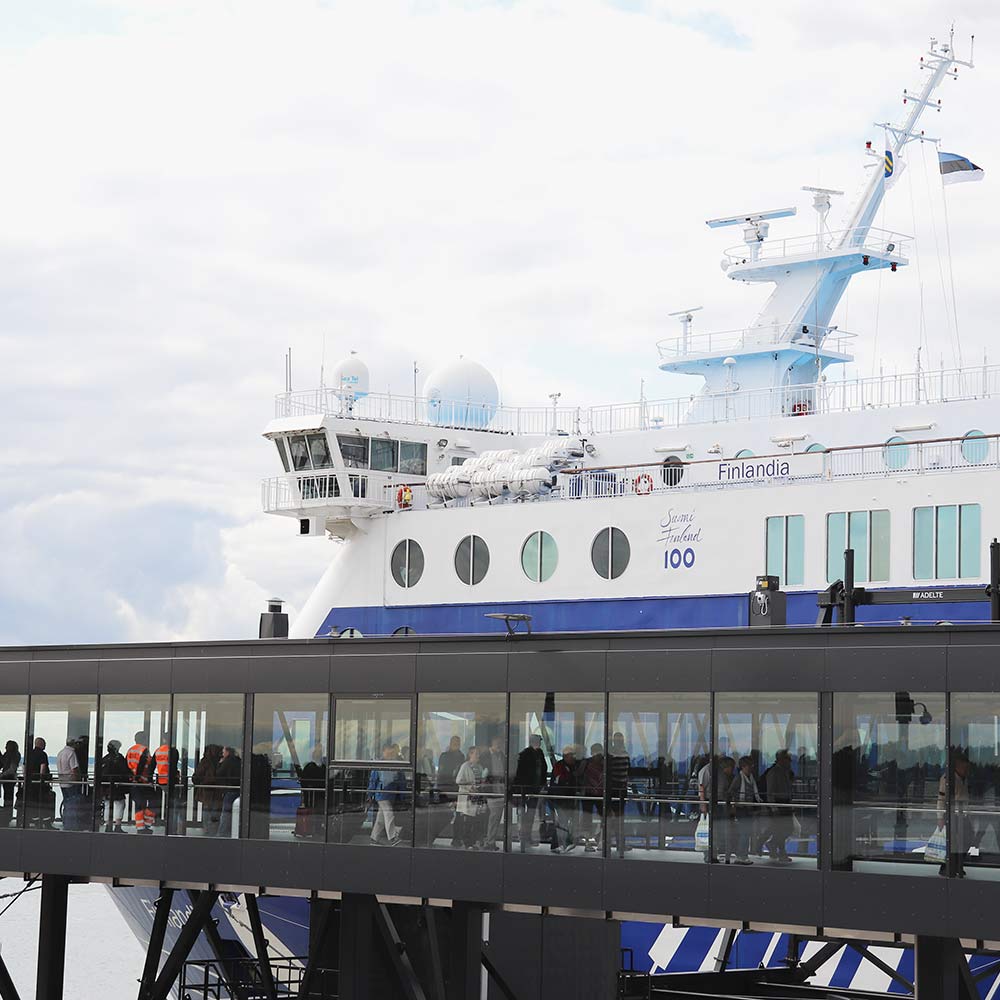
Customers
We would not be without customers: cruise passengers, commuters, conference customers, cargo customers, etc. Their safety is the foundation of our operations and the highest priority in our operations.
Passenger equality is important to us and we are developing the accessibility of our services. Together with passenger terminals, we offer a free assistance service for passengers with, for example mobility impairment, with vision or hearing impairment or reduced mobility due to old age. We take special needs into account as much as possible, starting from the booking process and the transition from the passenger terminal to the ship, during the voyage and the transition from the ship to the passenger terminal.
Aiming for the best service in the Baltic Sea – we measure customer experience
Our personnel
Our values that guide our personnel are job satisfaction, the fairness of doing and looking ahead. We have continuously worked together to develop the corporate culture and management, and our goal is to be the Baltic Sea's best workplace.
Our employees are equal and we promote equality in working life purposefully and systematically. We have an equality policy and the principle of equal treatment. Our employees have the same opportunities in terms of pay, terms of employment and opportunities for advancement. We have zero tolerance for discrimination, bullying and inappropriate behaviour.
Our employees also have the opportunity to maintain and deepen their professional skills. In addition to taking personal development needs into consideration, the employer also regularly organises training and coaching. Occupational safety operates both on land and on ships and aims to improve the working environment and working conditions, to protect and maintain the working capacity of workers and to prevent accidents at work.
Health promoting management
We have Great Place to Work certificate
Society: educational establishments, authorities
We have had long-term educational cooperation with educational establishments that are primarily related to our line of trade and operations, such as tourism and maritime educational institutes. In 2020, Eckerö Line was awarded Partner Company of the year by Haaga-Helia University of Applied Sciences. We have offered students from Haaga-Helia internships and an opportunity to gain work experience, and at the same time we have, through joint projects, produced current and new information about our business.
For many young people, Eckerö Line is their first real job and it is important to us to give them a good start and prepare them for working life and to act as an exemplary coach in working life. We are pleased that we can help increase the number of experts in the Finnish tourism and service industry and deepen the level of expertise.
Our operations are essentially based on cooperation with various authorities such as the Finnish border guard and the Ministry of the Interior, the Police, the Finnish Transport and Communications Agency Traficom and the Ministry of Transport and Communications. We strive for as proactive co-operation as possible, in order to be able to influence not only the smoothness of the co-operation and our own actions, but also the societal understanding of the importance of shipping companies.
Shipping is a co-operation that benefits the whole of Finland. With our logistics transports, we keep the Finnish society operational and smooth operation is an essential part of our country's security of supply. In a crisis situation, the connection to the world is secured by ships sailing under the Finnish flag and with a Finnish crew who knows the conditions.
Way of acting
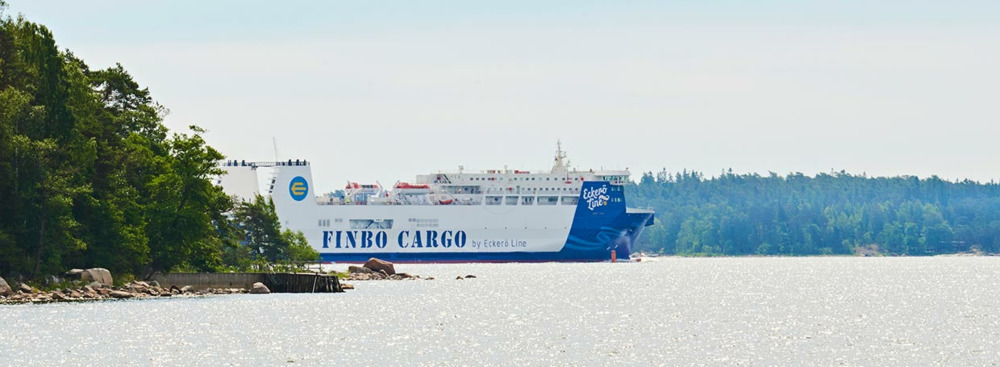
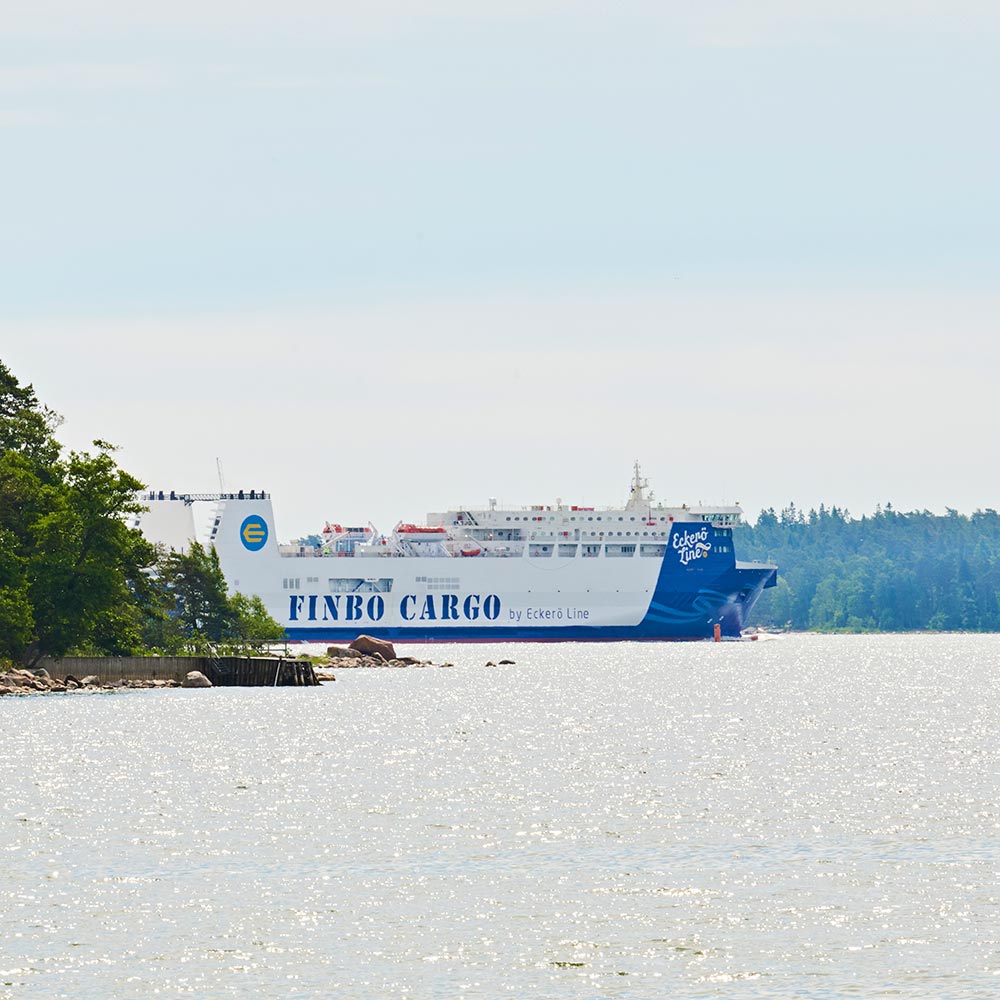
Safety
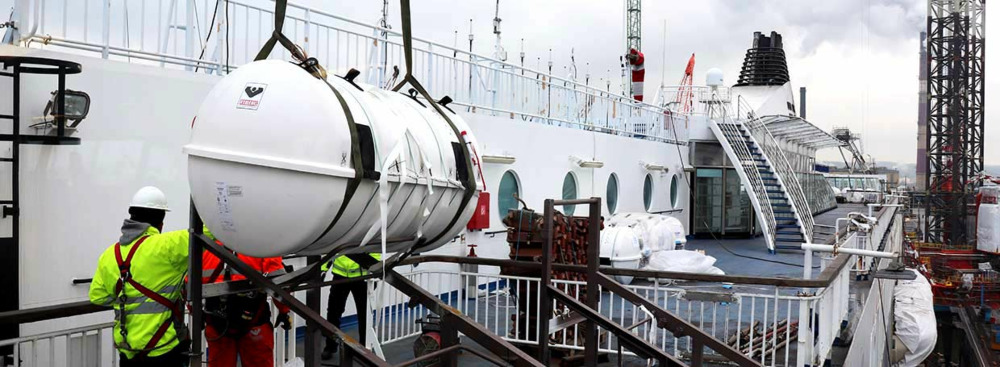
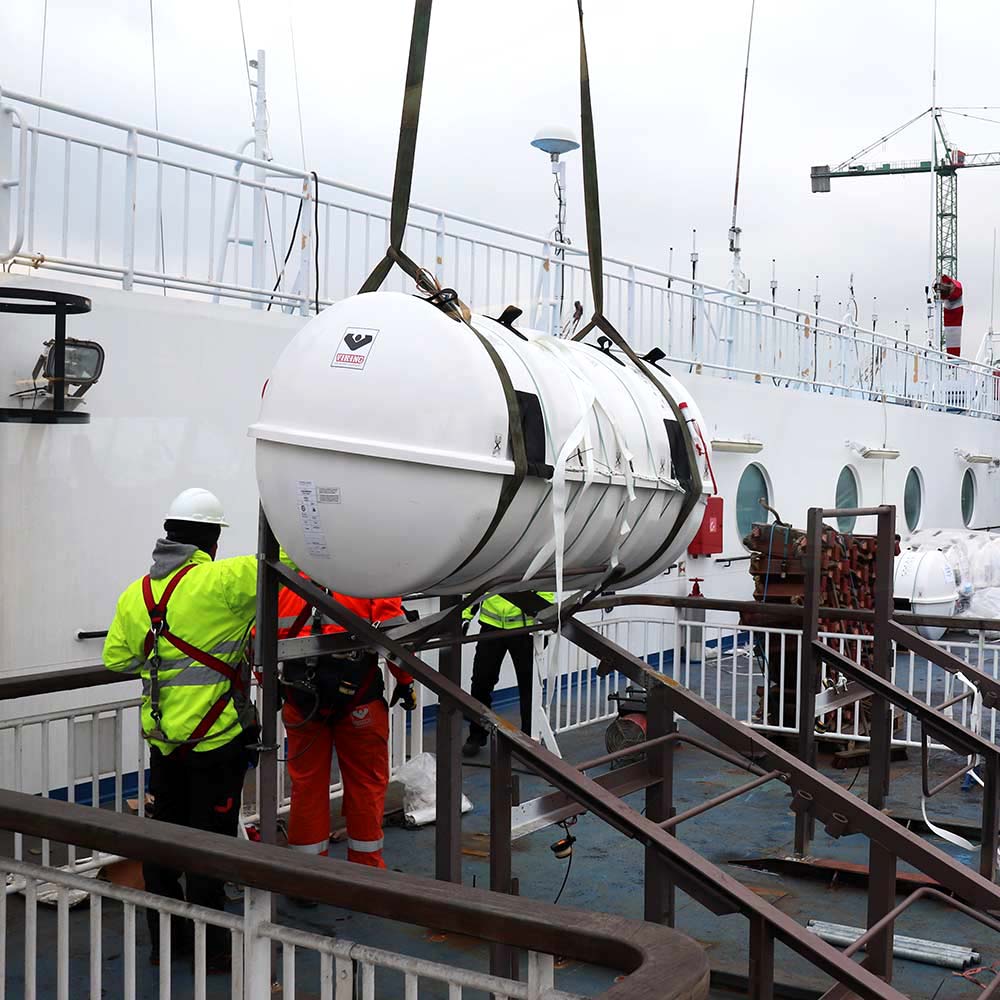
New liferafts are set up on m/s Finlandia.
The cornerstones for safety of ship-related operations are defined in the International Convention for the Safety of Life at Sea (SOLAS). Our practical safety work is governed by ISM (International Safety Management) and ISO14001 (Environmental Management System). Detailed safety plans have been drawn up for m/s Finlandia and m/s Finbo Cargo. The goal is for ships to be safe for passengers and ship personnel, property and cargo, and the environment. It is supported by ground operations in our offices in Helsinki, Tallinn and Mariehamn. Ships are subject to continuous monitoring and maintenance during their operations. They visit the shipyard every two years.
The personnel onboard are trained for emergencies with mandatory weekly exercises and they each have a well-defined safety function. A number of exercises and inspections are also carried out annually together with various authorities, with the emphasis on safety in terms of ship condition, staff competence and customer guidance. Safety is always our priority.
Exceptional situations, such as COVID19, also create safety challenges of their own. We want to ensure as safe as possible travel experience for our customers and at the same time a safe working environment for the whole personnel.



